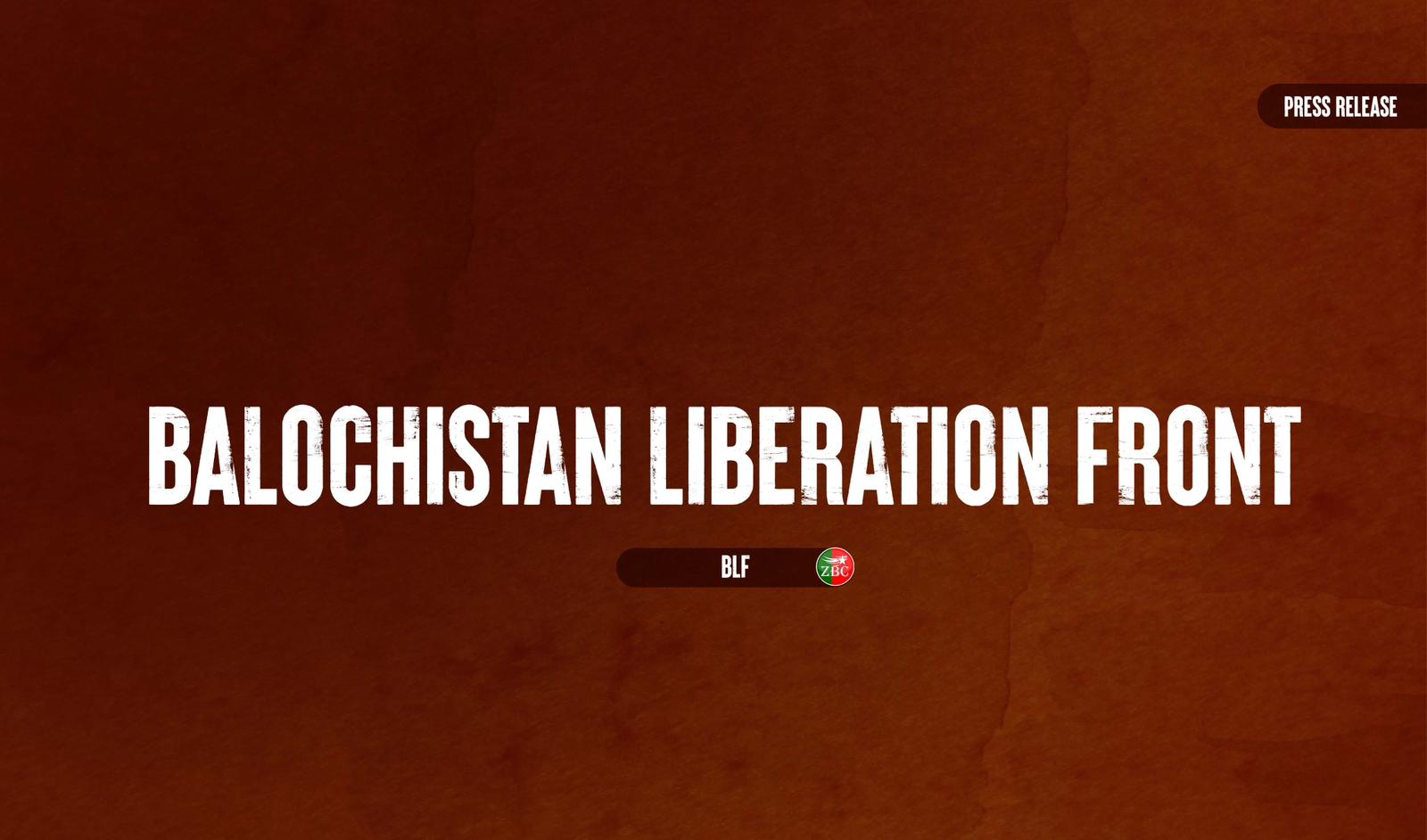
The Balochistan Liberation Front (BLF) has announced the successful conclusion of its military campaign “Operation Baam,” stating that all strategic objectives were achieved. In an official statement released to the media, BLF spokesperson Major Gwahram Baloch said that a total of 84 attacks were carried out across Balochistan during the operation.
According to the spokesperson, the operation inflicted significant losses on Pakistani security forces and state institutions. At least 50 personnel of the Frontier Corps (FC) and Pakistan Army were killed, while more than 51 others were injured. Additionally, nine intelligence operatives were also reportedly killed.
During the campaign, BLF fighters targeted key infrastructure including the destruction of seven mobile towers along with their equipment, and established 22 checkpoints at various locations. A total of 25 vehicles, including those transporting minerals and gas, were either destroyed or rendered inoperative. Surveillance systems were also hit, with more than five drone cameras and quadcopters reportedly downed.
The group also claimed responsibility for setting a bank on fire and damaging a government secretariat bus.
BLF detailed the types of attacks carried out: over 30 direct assaults on Army and FC units, two attacks on military intelligence (MI) and Inter-Services Intelligence (ISI), four ambushes, and targeted strikes on one Customs checkpoint, one Coast Guard post, four Levies checkposts, and four police units. In several operations, weapons were seized, including arms taken from a bank security guard.
Major Gwahram Baloch stated that Operation Baam reflects BLF’s disciplined and strategic military planning aimed at challenging the state’s occupation, military presence, and exploitative systems. He noted that BLF fighters conducted coordinated operations across regions including Makran, Rakhshan, Kolwah, Sarawan, Jhalawan, Koh-e-Sulaiman, Bela, and Kachhi.
He emphasized that the operation marks a shift in BLF’s military strategy and showcases enhanced capabilities and commitment to the goal of national liberation. “Operation Baam represents a new phase in the Baloch national liberation movement,” he added.
The statement also issued a strong warning to the Pakistani state, asserting that the era of colonial exploitation in Balochistan is coming to an end. The spokesperson criticized the state’s policies of repression, manipulation, religious propaganda, and what he termed as “false democracy,” claiming they can no longer mislead the Baloch nation.
“Pakistan’s exploitative policies, driven by Punjabi chauvinism and fascism under the guise of nationalism, have been fully exposed to the Baloch people,” the statement read.
Concluding the statement, Major Gwahram Baloch declared that “Balochistan will no longer be the ‘golden goose’ for Pakistan. Any continued effort to maintain colonial control will only lead to more bloodshed.” He warned that the longer the Pakistani state and its Punjabi political elite delay in recognizing Balochistan’s independence, the greater the price they will have to pay.
The BLF confirmed that Operation Baam was launched on July 9 and concluded late on the night of July 11, during which fighters carried out a series of coordinated strikes across the province.

